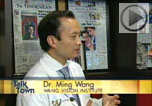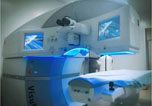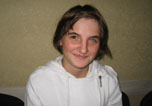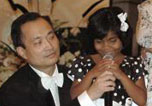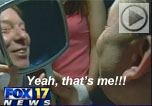- Over 55,000 LASIK and cataract procedures (including on over 4,000 doctors)
- The FIRST center in TN to offer Laser Cataract Surgery
- Introduced bladeless all-laser LASIK to the state
- Implanted the state's first FOREVER YOUNG™ Lens
- The first surgeons in the US to perform a new Intacs surgery to treat keratoconus
- Helped patients from 40 states and 55 countries
- International referral center for cataract surgery and LASIK complications
- Read Dr. Wang's book: LASIK Vision Correction
Why did you decide to have LASIK? Why did you choose Dr. Wang? How has your life changed since your LASIK procedure?
What is your advice for people considering LASIK?
Click to read more
|
Chapter Eight LASIK Postprocedure Care Once your procedure is completed, you will sit with your eyes closed for approximately thirty minutes. Afterward, your doctor will check your eyes to ensure that the corneal cap is properly positioned; then you will be instructed to go home and take a nap. Because your vision will be somewhat blurry and you will have received a sedative, you will need to have someone drive you. Additional drops will be placed in your eyes, and you will be instructed on the use of your medications. You will also be given clear plastic shields to wear at night for as long as your doctor instructs (at least two nights, usually three days to one week). These prevent accidental trauma to the flap during the healing period should you inadvertently bump your eye. Before you go home to rest, your surgeon may also give you something to help you sleep, for this is the best way to keep your eyes closed for the first few hours. Following the LASIK surgery, you may experience some discomfort, which may last for six to eight hours. Patients describe the discomfort as a "sandy feeling" or liken it to having a dirty contact lens in their eye. With LASIK this discomfort is usually gone by the next day. Tylenol®, aspirin, ibuprofen, or similar over-the-counter pain medications are usually adequate to keep you comfortable. You will also be given antibiotic eye drops, anti- inflammatory eye drops, and lubricant eye drops to promote healing. It is common for the eyes to feel somewhat dry, and the lubricant drops (also called "artificial tears") may be used frequently. Immediately after the surgery, you can expect your vision to be fairly blurry. It may look as though you are looking through a glass of water or wearing a dirty contact lens in your eye. With LASIK there is usually a dramatic improvement in vision in the first twenty-four hours. Guidelines for Healing Follow these guidelines to promote safe and rapid healing:
Postoperative Follow-up Schedule When you leave the laser center, you will be given complete instructions to follow, including a postoperative appointment schedule. Here is a typical postoperative appointment schedule: |
| Purpose of Appointment | Time Frame Following LASIK Procedure |
|
1 day |
|
1 week, 1 month |
|
3-6 months |
|
12 months/annual exam |
|
The LASIK Recovery Cycle Your vision improves quickly after LASIK, and many patients feel comfortable enough to drive in one to two days. The corneal flap is relatively adhered in one week, but it is advisable not to rub your eyes vigorously for one month. The return of visual stability after LASIK varies for each patient. For some, stability can be achieved in as few as two weeks; for others, stability may take up to three months. As a rule, vision will improve in three hours, more in three days, three weeks, and even in three months. Generally, during the course of the first month, there is gradual improvement in the already good vision following LASIK. You can also expect a small reduction in nighttime halos and some return of near vision in patients over forty. For the first five to seven days after your operation, you will be using medicated eye drops. It is generally advisable to continue using lubricant drops for the better part of the first month after your procedure. Well lubricated eyes heal better, maintain better visual stability, and are more comfortable. These drops are available over the counter. It is important that you keep your postoperative appointments as your drop regimen may be altered. Also, the doctor may need to monitor your eye pressure if you are on postoperative steroids for any length of time. Be sure to keep your follow-up appointments. Most patients enjoy good functional vision during the first month. Fluctuations in your vision are common during the first two to three weeks, especially for higher visual corrections. Patients undergoing hyperopic LASIK (farsightedness treatment) may notice that their near vision is better than their distance vision. This is quite common, and the distance vision will continue to improve during the first month. Some patients may feel more comfortable with a thin pair of glasses to assist them with more critical distance vision activities, such as night driving or attending a play and trying to see the expressions on the actors' faces. Patients over forty years of age may require a thin pair of reading glasses. While many patients notice halos around lights or ghosting of images at night, these symptoms tend to diminish substantially within six months. Patients with drier eyes or who use the computer, who read for long hours, drive long distances, or live in low-humidity climates may notice some minor discomfort and blurring of their vision, particularly toward the end of the day. This is usually related to dryness of the surface of the eye. The frequent use of lubricant drops will help significantly. With LASIK, your vision usually becomes stable within three to six months. Once your vision is stable, your treatment is permanent. You now have less dependence on, and maybe complete freedom from, glasses and contact lenses. |
If you're interested in bladelessLASIK, choose experience and technology. Choose Wang Vision 3D Cataract and LASIK Center of Nashville, Tennessee. Call (615)321-8881 or email us today.
Our new texbooks
A 501c(3) charity that has helped patients from over 40 states in the US and 55 countries, with all sight restoration surgeries performed free-of-charge.




